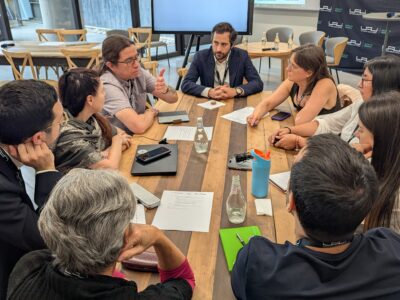Your Environmental Talmud Learning of the Day
This concerns one story of Honi the Circle-Maker, who famously demanded that God provide rain:
“When he read [Psalm 126], which says, ‘A song of ascent. When the Lord restores the fortunes of Zion, we see it as if in a dream,” he was troubled. [Recalling that it was 70 years between the date of the Psalm and the restoration of the Temple], he said, how can someone sleep and dream for 70 years?
“One day, he met a man who was planting a carob tree. He said to the man: how many years until the tree bears fruit? The man replied: seventy years. [Honi] said to him, ‘So explain to me how you will ever enjoy it!’ The man said to him, ‘I am full of the carob from this tree that I found because my forefathers planted it for me. So now I plant this for my children.”
–Babylonian Talmud, Ta’anit, Chapter 3, 23a. (Translation from the Aramaic mine with a massive assist from Rabbi Steinsaltz’ wonderful Hebrew interpolation.).
So what do we learn?
The Talmud has little use for discounting environmental benefits. One can imagine, say, Cass Sunstein or Larry Summers breaking into the story, and informing the man of his irrationality for valuing his children over more efficient uses of his time. Take one cent, put it in an interest-bearing account, and then your children and grandchildren will have more cash to do what they want with!
The earth is different. We hold it in trust, and are obliged to preserve and protect it for our descendants.
Just as interestingly, the passage suggests that to “sleep and dream” for 70 years is to prepare and plan for the future. And no: that preparation and planning is not about monetization. We build, and construct that world by our actions now. We create path dependencies.
As I argued a few months ago, religion is not economics. Here’s a good example of it. And it has real implications.







Reader Comments